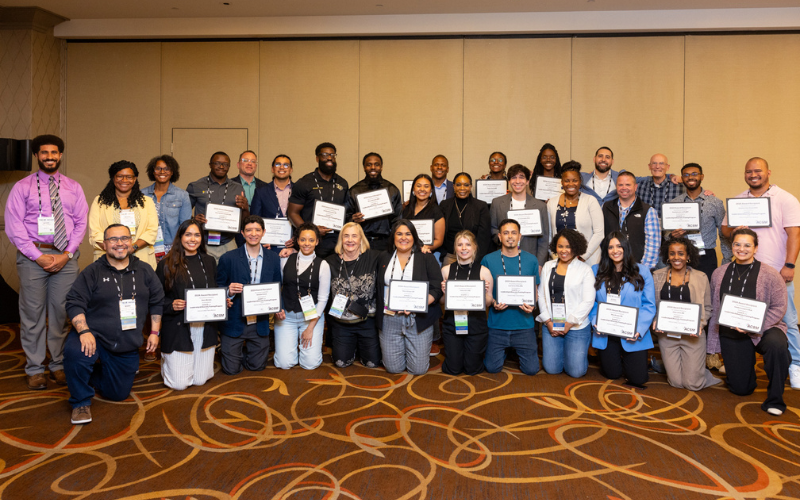ACSM’s Leadership & Diversity Training Program (LDTP) exists to mentor and retain minority members by offering three different levels that require ACSM membership, involvement in the ACSM Annual Meeting and committees, and pursuit of ACSM professional presentations & publications with the ultimate goal of obtaining ACSM Fellowship. Currently, only 18.6% of ACSM Fellows identify as a member of a racial or ethnic minority group that is underrepresented in the sciences as defined by the National Institute of Health (NIH).
**ACSM offers an array of travel and mentor award programs available to varied populations. Click here for complete details on all award programs which support travel to the ACSM Annual Meeting and/or provide access to career development.
Those accepted into the program will receive:

![]()
The program offers three levels. Levels are determined by the applicant’s educational level/status. An individual may spend up to five years total in the program (at different levels).
All applicants must meet the following general criteria:
All applicants must meet the following general criteria:
All applicants must meet the following general criteria:
![]()
The application for each level requires four components:

Rafael Alamilla’s affiliation with ACSM’s Leadership & Diversity Training Program (LDTP) began with an interesting

It was during the third year of my Ph.D. work at Boston University when I
6510 Telecom Dr.
Suite 200
Indianapolis, IN 46278
317-637-9200
317-634-7817
ACSM’s National Center hours are 8 a.m. to 5 p.m. ET Monday through Friday.
© ACSM. All Rights Reserved.